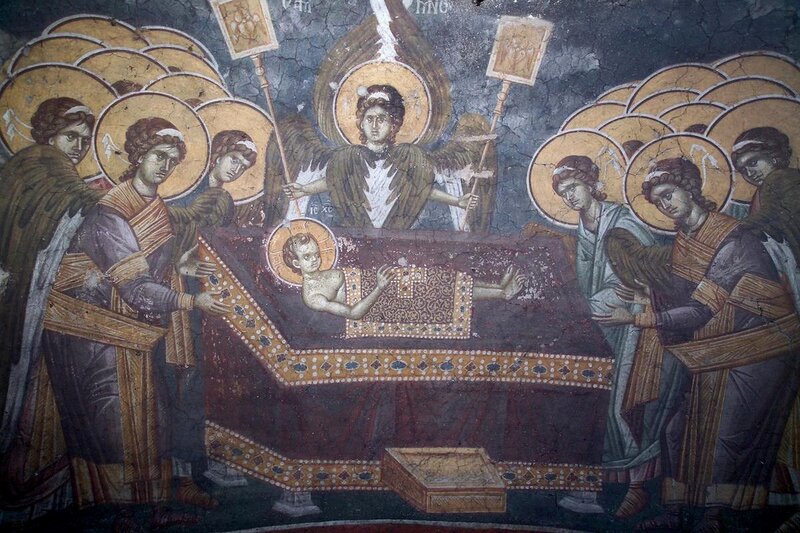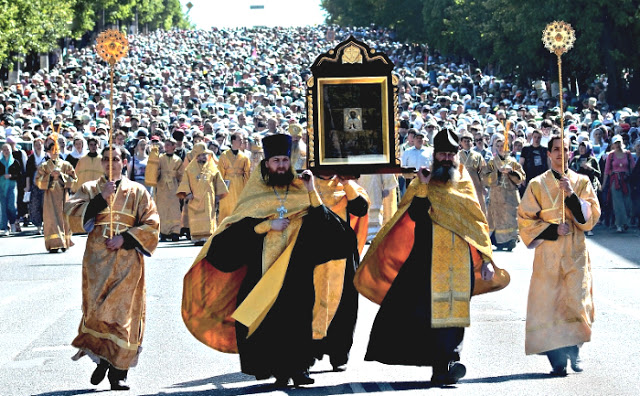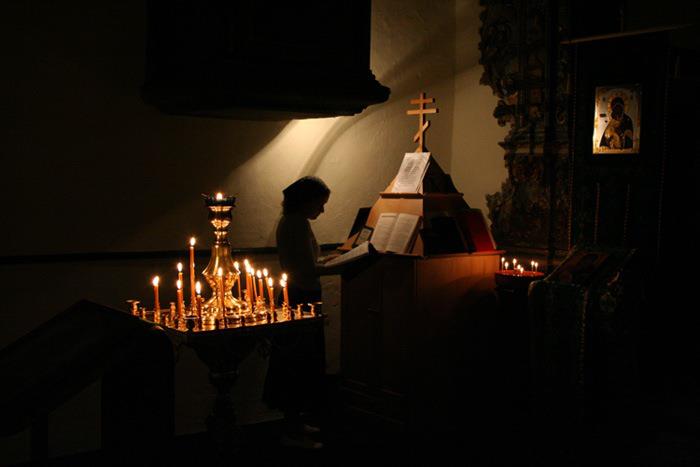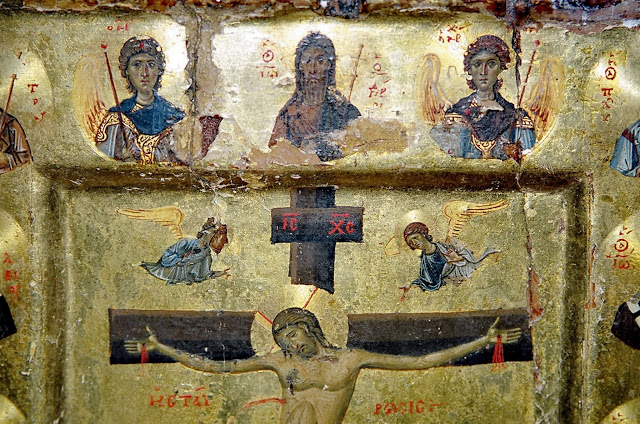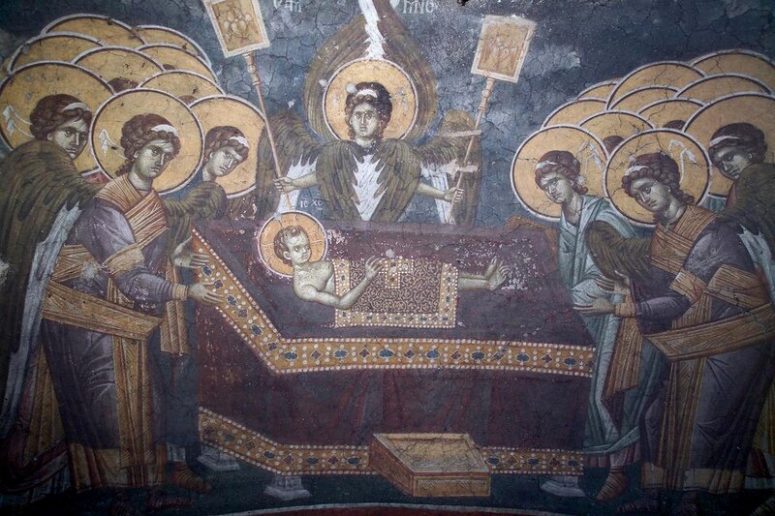
The Cherubic Hymn is a preliminary or prefatorial chant to the Eucharistic Canon, which culminates in the transmutation (that is, a sacramental transformation) of simple fruits of the earth – bread (a prosphora), wine, and water – into the greatest sacred object of the Orthodox Church, that is, the Body and the Blood of Jesus Christ by the grace of the Holy Spirit. Let us point out the following to acknowledge the utmost importance of the Great Entrance. According to the rubrics, the officiant may leave the church prior to the Cherubic Hymn in the case of an emergency (e.g., to give communion to a dying Christian or in the case of enemy’s attack) but as soon as the Cherubic Hymn starts, it is no longer possible for him to leave the church until the end of the Liturgy. He must finish the Liturgy no matter what. The Life of Hieromartyr Macarius the Metropolitan of Kiev proves it. He was murdered on May 1, 1497. The holy hierarch celebrated the Liturgy on that day. He had been warned of a plundering Tatar band spotted near the church. However, the hieromartyr refused to leave his flock and chose to finish the Divine Liturgy. The metropolitan was killed by the Tatars who broke into the church. That’s how important the Cherubic Hymn is.
It is attributed to Saint Basil the Great, although it became widely used much later, in the times of Emperor Justin II (ca. 573). It was titled ‘Cherubic’ providentially and symbolically. Cherubs are among the highest ranking Angels who praise the Almighty near his Throne. While the Cherubic Hymn is being sung and during the subsequent Eucharistic Canon, we Orthodox Christians and the members of the earthly Church must be like the Cherubs who praise the Lord and lay aside all earthly cares. The Kingdom of God is nigh. The Lord is in our midst during this most sacred divine office, the Liturgy. He is ready to descend onto the bread, the wine, and the water for the sake of our salvation and transform them into the Body and Blood of Christ. It is at that great and awe-inspiring moment that we must forget all our daily cares and troubles and focus our minds and hearts on Christ as intently as we can, lifting ourselves by faith and attention with God’s help up to the height of the blessed holy Cherubim. That is why the Cherubic Hymn starts with the following words, “We who mystically represent the Cherubim, and who sing to the Life-Giving Trinity the thrice-holy hymn, let us now lay aside all earthly cares…” The Cherubim also stand with us by the Throne of God and praise him at this great and awe-inspiring moment when God comes near to his creation. That is why we shouldn’t leave the church from that moment onward, unless there is an emergency. Shortly after this hymn, the Lord is to grant us his greatest gift: the Body and Blood of Christ. Let us be worthy of this redemptive gift, this great sacrifice of Christ. Any movements, kissing icons, kneeling, or lighting candles are frowned upon at that moment. Everyone focuses their utmost attention on the altar while the Great Entrance is being made. You shouldn’t leave the church unless there is an emergency after the Cherubic Hymn and until the dismissal. The importance of this moment is further underlined by the fact that the priest repeats it in the sanctuary under his breath while the choir is singing it. He lifts up his arms to boot, which typically occurs only at the most central moments of worship (such as, during the transmutation of the Holy Gifts). It is the ultimate effort that symbolizes our openness and yearning towards God, hence we beg him like children beg their Father.
The Great Entrance is one of the key and the most spiritually significant moments of the Divine Liturgy, which occurs at the same time while the choir is singing the Cherubic Hymn. If you compare it with services of the annual cycle, it must be on par with the Holy Week. Our Lord God and Savior Jesus Christ goes out to suffer for us. He goes to Golgotha where soldiers nail him to the cross. The Savior dies, and heals our sins by his death, thus saving the human race. When the Great Entrance is over, the Diskos and the Chalice are placed onto the Holy Table, which symbolizes the burial of Christ. It is no accident that the priest (or bishop) reads prayers of the Holy Saturday at that moment.
That is why the Cherubic Hymn and the Great Entrance is an almost Angel-like insight that a human may have into this amazing Act of Redemption of the human race. All earthly cares and routines must become negligible and remain outside of the church. It is precisely at that moment that the Heaven is being opened for each of us. The Lord heals our battered souls and leads us into the paradise.
Translated by The Catalog of Good Deeds

